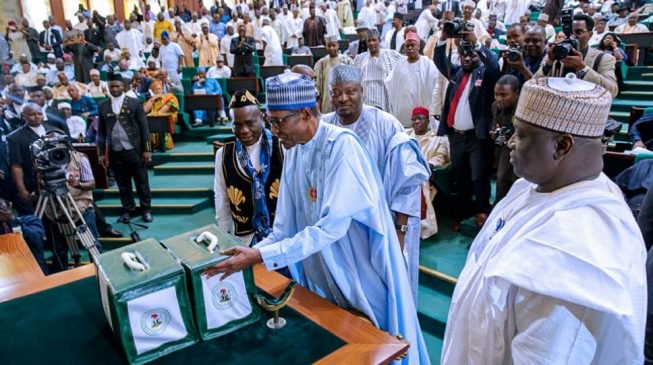
Virtually every system of government recognises the important roles of the executive, legislature and judiciary arms of government. Some systems unify these arms of government in their operation, whilst others separate them to ensure adequate checks and balances. The presidential system of government Nigeria practices separates the three arms of government and makes provisions for each one to check the others. This was done to ensure that the government is balanced and prevent abuse of office by any arm of government. The legislatureis conferred with the powers to make the law, but lack the powers to either interprete or directly execute the law. The executive is granted the powers to implement and enforce the law but lacks direct powers to make laws. And the constitutional preserve to interprete the law is domiciled in the judiciary. This well-intended separation of powers has also created unending rivalry for the two most visible arms of government – legislature and executive. Executive-legislature standoff is not alien to the presidential systems of government. In fact the United States which Nigeria models her system after is notorious for this standoff culminating in a government shutdown many times. One of the most common ways lawmakers exert legitimate power is by withholding approval for big spending by the executive in order to force the hand of the leader of the executive to do their bidding. This tactic has often proved potent because the executive, many times, requires the approval of the legislature for certain approvals, especially the budget. As it is in the United States so it is in Nigeria.
Ever since the return to democracy in 1999, executive-legislature standoff has becomea visible part of our democratic experience. The standoff even got to the point of an impeachment process spearheaded by a former speaker of the House of Representatives. Executive-legislature impasse as a characteristic of our democratic experience is still very strong today. It is no news that both arms of government have been at loggerheads since the beginning of the current administration. For three years running, this situation has moved from bad to worse with every action from either arm of government targeted at the other usually interpreted as politically motivated. Whilst this development may have substantial political consequences on our teenage polity, my worry is the unintended eventual effect on the average Nigerian. The executive arm of government is primarily responsible for the formulation of policies and spending on infrastructural activities that will directly impact the live of the man on the street. Government spending cannot be done without the backing of the national assembly, which is often done through an act of parliament called budget. A budget is a statement of income and expenditure, but it is also an act of the parliament. It is a law, which presupposes that for the executive to spend outside budgetary provision is tantamount to a breach of the law of the land. This is why the budget is considered the most important financial document for the government every year. Organisations and investors wait for the approval and signing of the annual budget before investment decisions are concluded, and the people may not fully feel the impact of the government without an approved budget.
It is officially mid-year and the 2018 budget has still not been approved. Not only that the budget has not been approved, there is no hope it will become a law anytime soon. The national assembly recently passed the harmonised version and forwarded to the president for his assent on May 26, 2018. However, with the 2017 budget due to elapse by June 12, 2018, it appears the hope for smooth budget transition will be dashed again. The Minister for Budget and National Planning, Senator UdomaUdoUdoma has hinted that the president is still studying and has 30 days as provided by the law to withhold assent.Perhaps if the executive and legislature had been cooperative from the outset, especially during budget defence by the MDAs, the budget would have been passed earlier, but that did not happen. The whole budget defence was characterised by frivolous political drama.
Many businesses are in dilemma because the budget for the year has not been signed into law. For the sake of the artisan on the street who does not know where his next meal will come from,we need to reconsider our approach to the whole budget passage process starting from the point of preparation. In the end, we can only make considerable progress when the two arms involved in the process begin to see beyond politics and consider the Nigerians that should be the ultimate beneficiaries of the budget.